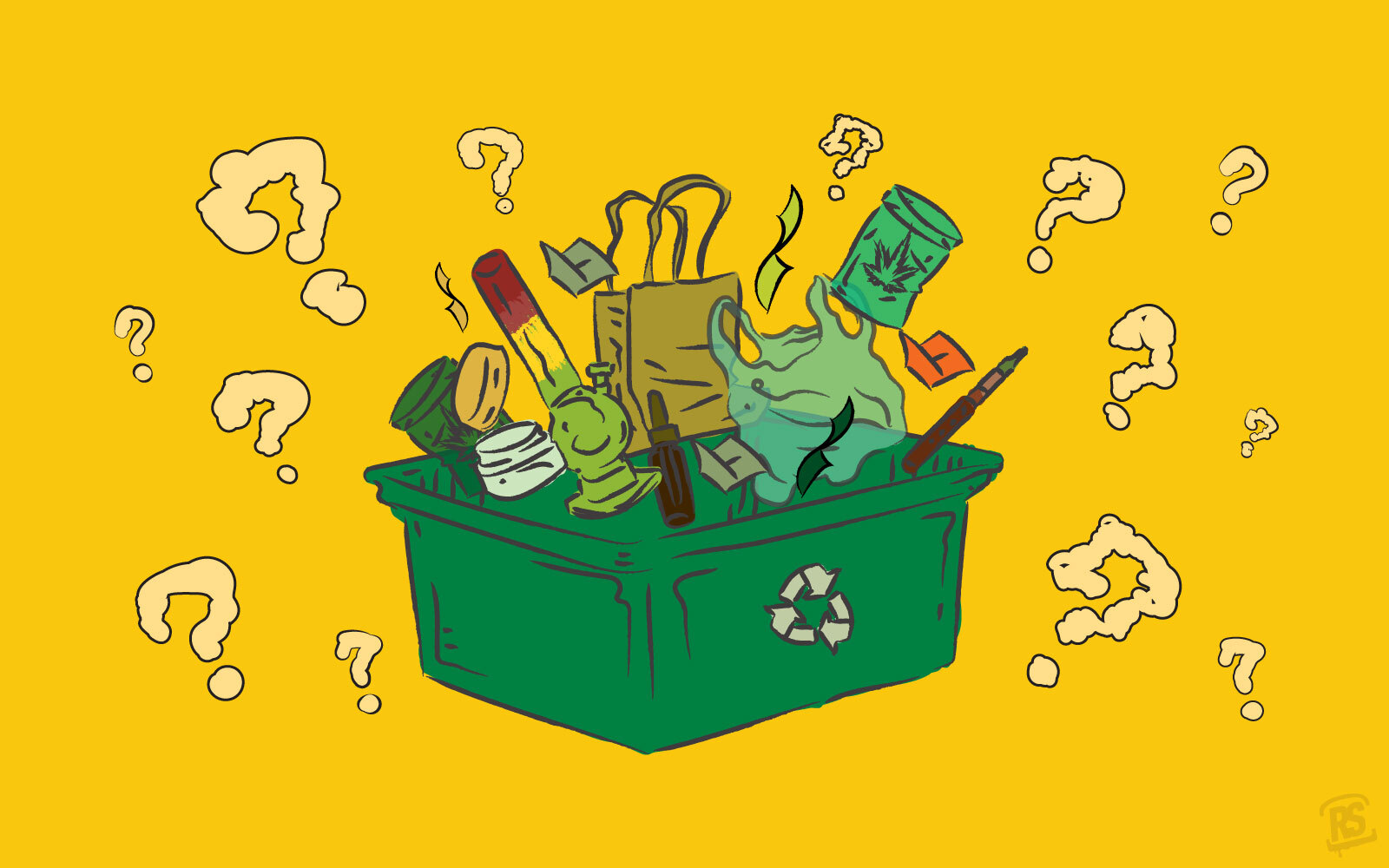As the cannabis industry matures, it’s starting to face the same sustainability challenges as other industries that have been around for decades longer.
The first sustainability issue is the actual growing procedures, which are usually energy-intensive. In addition, because cannabis has been relegated to the black market, institutional knowledge of growing the plant under sustainable best practices is slim and sparse. There are growers, like Pure Greens, that focus on highly efficient greenhouse operations. Pure Green has automated its facilities to a centrally controlled system that limits human error. Accordingly, this system regulates everything from fans and temperatures, to irrigation and electricity. In this way, the company can reduce waste and be more environmentally conscious. It even has a water treatment plant on site.
Cannabis Packaging Has A Long Way To Go
While the industry is making headway on sustainable growing practices, it faces an uphill battle on another important sustainability frontier; packaging. Long gone are the days of sandwich bags filled to the brim. Along with the individual brand’s packaging, governments require dispensaries to package the products in childproof ziplock bags. Industry experts estimate that 3.5 grams of flower come with up to 78 grams of plastic packaging.
In addition, the industry so far has difficulty collecting and recycling the packaging. In Colorado, recycling centers won’t take packaging because they have to follow federal regulations. Weed is still considered a Schedule I drug.
“It’s hard to do things like recycle the way you would a can or a bottle or any other sort of plastic,” says Adolphus Busch, founder of ABV Cannabis Co. “It’s impossible to [put] those same recycling practices [in place] because everything in this industry has touched cannabis; therefore, [recycling centers] won’t allow you to recycle [them].”
Regulatory Roadblocks
Even just setting up collection centers can be difficult. California and Colorado have regulations that prohibit the collection of used products, for fear that people will resell legal cannabis on the black market. Most dispensaries don’t even allow opened cannabis products in the shop.
Companies are trying to create recycling programs. In Canada, TerraCycle, a reusable packaging company, partnered with Tweed to create a national recycling program. The program collects cannabis packaging from any brand. It expanded into collecting vape batteries and cartridges. The company collected 31,204 pounds of cannabis packaging by September 2019.
Busch’s company focuses on moving away from plastic packaging to paper products. He is working on finding a child-resistant paper packaging product and creating a beautiful, durable holder for joints. He hopes customers will want to reuse it, the same way people do with plastic pop-tops.
“Going to 100 percent paper has been great for us,” he said. “It’s affordable, easy to use, and basically biodegradable. And it’s still really nice packaging so people can use it repeatedly.”














